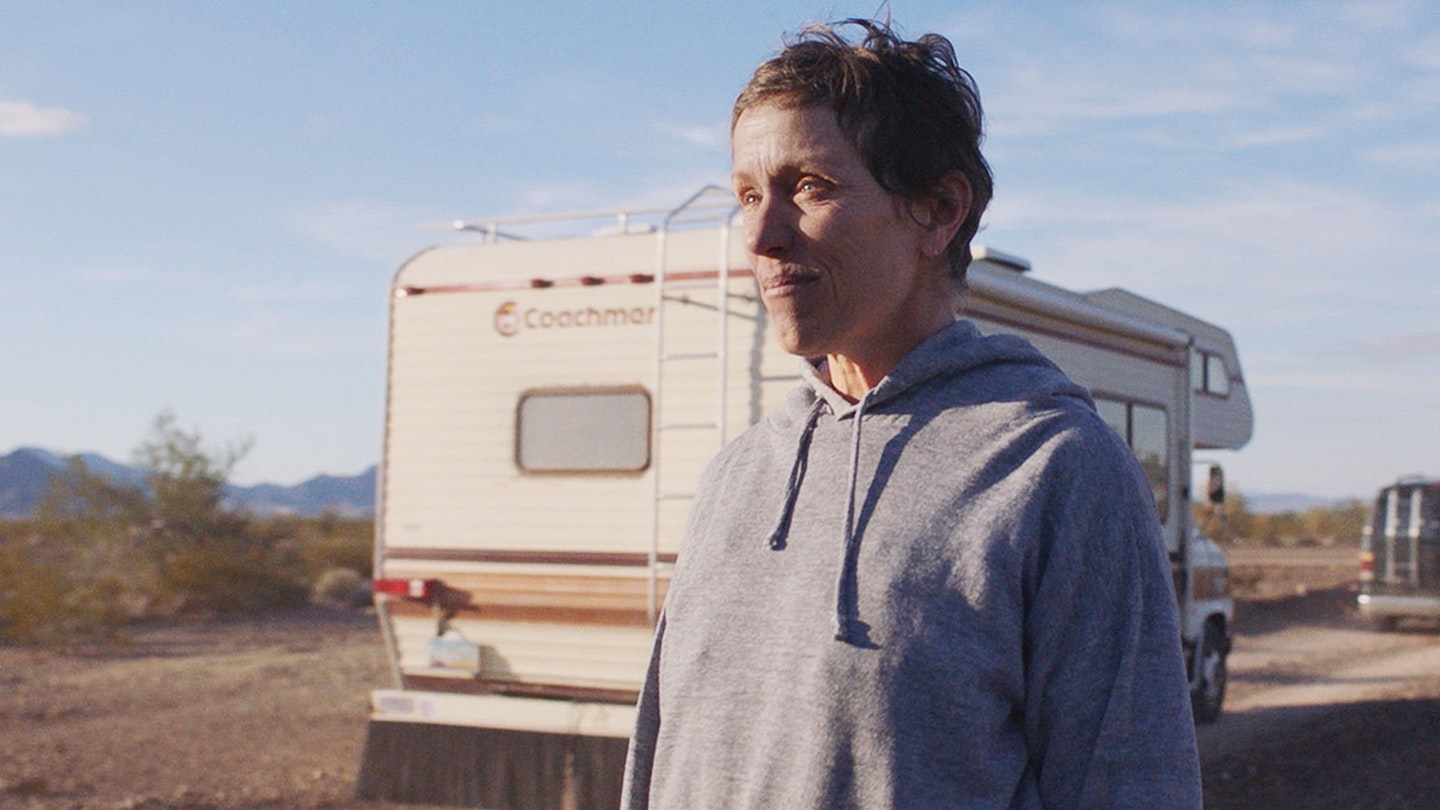If 2021 wasn’t the complete return to normality that we all hoped for after the year that preceded it, there were things to be thankful for over the last 12 months: notably that, after another difficult lockdown, cinema finally returned in the summer. Films returned to their natural home on the big screen, long-awaited (and long-delayed) new movies were finally released into the world, and audiences could, at long last, experience the thrill of cinema together again. And among the movies that did finally hit the screen, there was something for everyone – a stack of banging blockbusters, sprawling sci-fi epics, all-singing all-dancing musicals, intimate character dramas, pulse-pounding thrillers, and uncategorisable oddities. Against all the odds, cinema proved to be more alive than ever before – as you’ll see in Empire’s list of the Best Movies Of 2021.
Voted for by the entire Empire staff, it’s a list that reflects an array of thrilling voices – returning filmmakers displaying bolder visions that ever before and debut directors blazing fresh trails, creating films that thrilled, shocked, delighted, terrified, and inspired us through another tough year. There are streaming gems and none-more-cinematic epics, small-scale character pieces, international favourites, wildly unpredictable works, and songs dedicated to seagulls on tyres. And, as ever, it's based on UK release dates. Take a read through our full top 20 here.
The Best Movies Of 2021
 1 of 20
1 of 2020. Barb & Star Go To Vista Del Mar
While some films play by the rules, others are destined to chart their own mad course, like a cat up a palm tree who's decided to go up a palm tree. Barb & Star Go To Vista Del Mar is firmly in the latter camp – a deliriously daft comedy from Bridesmaids duo Kristen Wiig and Annie Mumolo and debut director Josh Greenbaum that channels SNL-style anything-goes sketch comedy with a surreal Tim & Eric edge. Together, Wiig and Mumolo play a pair of middle-aged Midwestern besties who head off to a Floridian resort on holiday, before getting tied up in a love triangle with Jamie Dornan's emotionally-vulnerable henchman and entangled in a supervillain's plot to, er, unleash killer mosquitos on the beach. It's weird, but wonderful too – from its distinct visual tone (the whole thing is an alt-universe Jimmy Buffet pastel daydream), to its rapid gag-rate, to that standout musical number. An instant cult (or, should that be 'culotte') classic. BTRead the Empire review.
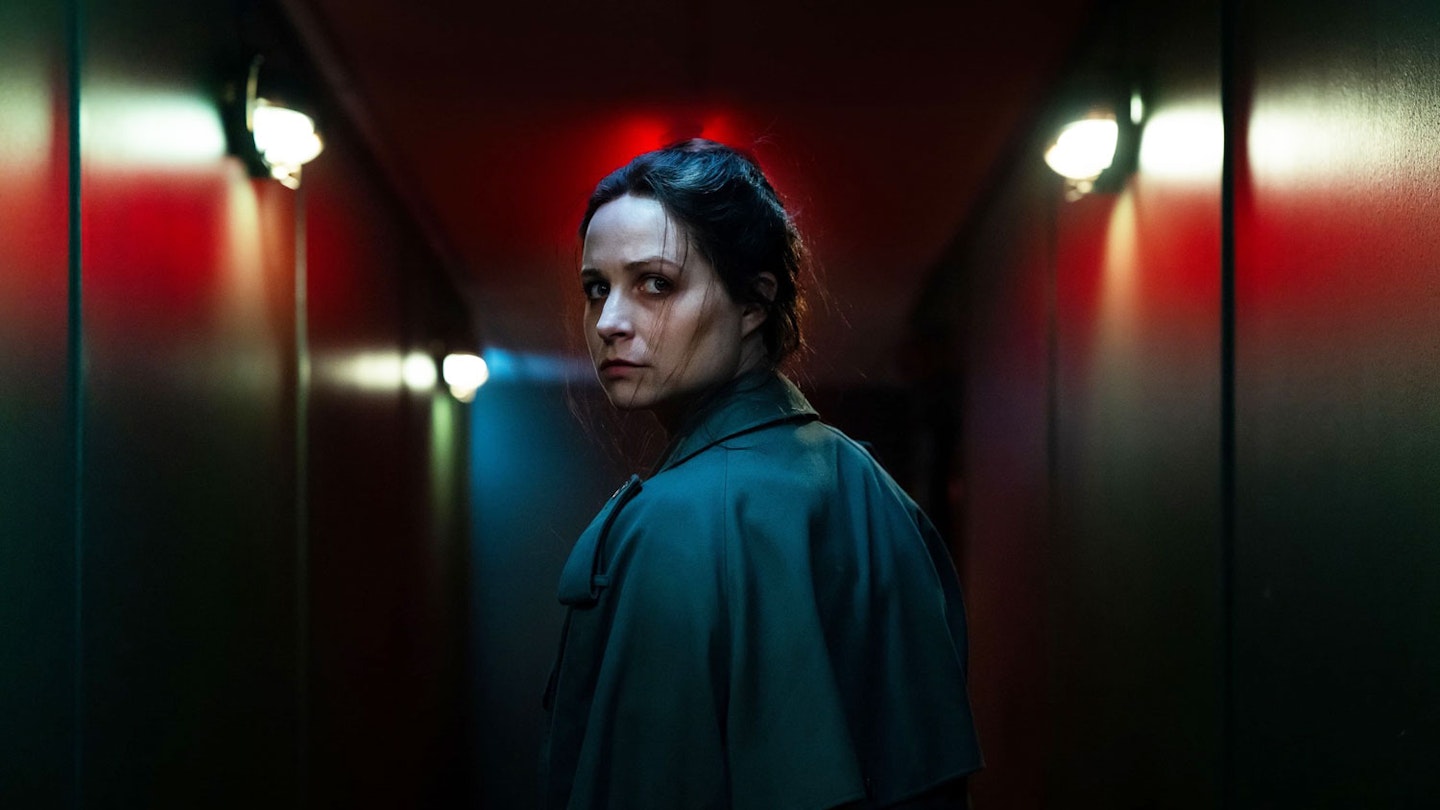 2 of 20
2 of 2019. Censor
At the centre of Prano Bailey-Bond's beautifully-constructed psychological horror debut is one of the most captivating turns of the year – Niamh Algar plunging down a rabbit-hole of gore-fests and giallo lighting against the grim backdrop of '80s Britain. Film censor Enid is a woman on the verge of a nervous breakdown, burrowing into the trauma she never truly processed – while the country around her is corrupted by Thatcher-era politics, and people's fear and anger is misdirected into a moral panic about video nasty horror films. When she's confronted at work with a scuzzy splatter flick that mirrors the harrowing disappearance of her sister as a child, Enid's search for the truth finds reality and fiction blurring together, her world dissolving between grey Britain and neon-lit horror hyperreality – with bursts of violence that permeate both. It's a thrilling high-wire act that Bailey-Bond navigates with vision and precision, crafting a love-letter to Argento and his ilk with an authorial stamp (and a thematic preoccupation with the reverberations of trauma) all her own. BTRead the Empire review.
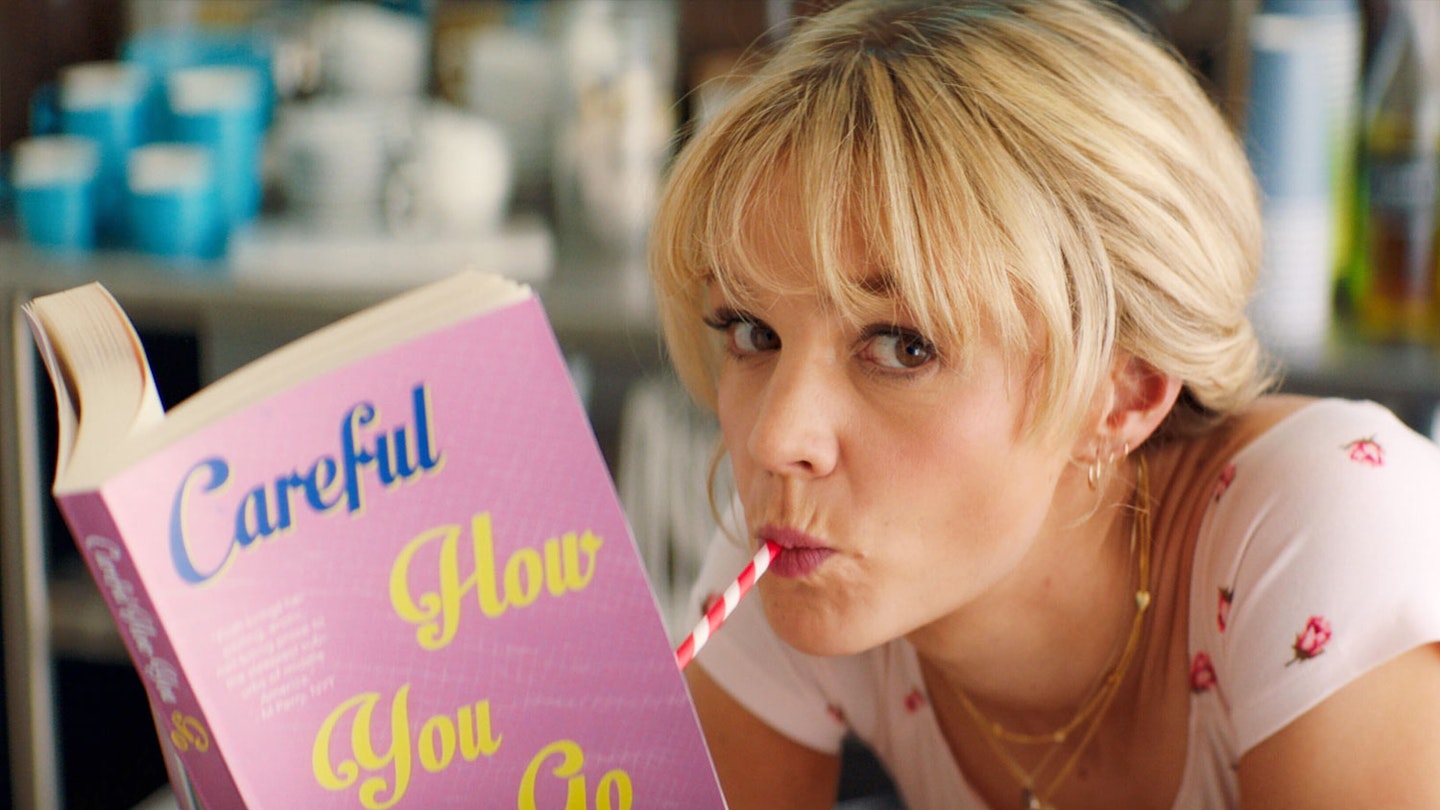 3 of 20
3 of 2018. Promising Young Woman
The fuchsia-saturated revenge romp that many expected Promising Young Woman to be never arrived. In its place came a bold and provocative romance / comedy / horror / thriller / drama starring Carey Mulligan as Cassie, a medical school dropout righting the wrongs committed against her best friend, whose plan starts to fall away when she meets, and falls for, fellow ex-student Ryan (Bo Burnham). It's certainly stylish, slick and camp (and soundtracked by Paris Hilton amongst others), but this is the palette with which writer-director Emerald Fennell wants to tackle #MeToo, rape culture, justice, culpability, and – fundamentally – grief and rage. This is a film about what happens to women, out in the world, every day. About the consequences, and how we try – but don't always succeed – to live with them. It's brutal, unpalatable realism soaked in glitter and sugar – whatever it takes to make the medicine go down. TWRead the Empire review.
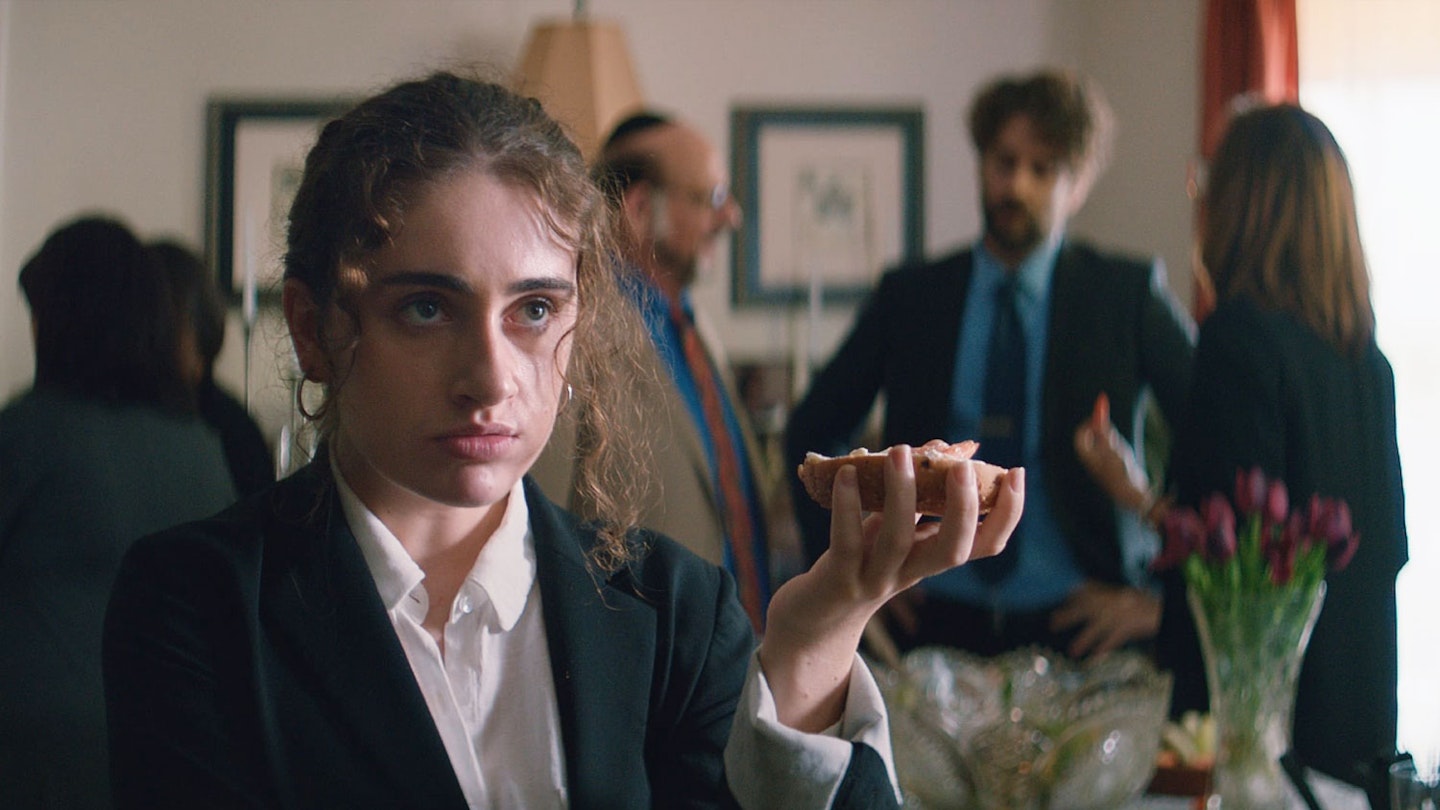 4 of 20
4 of 2017. Shiva Baby
If you sat through Uncut Gems and thought, "Well, that was good, but I wish it was a bit more stressful", then boy, have we got a film for you. Shiva Baby is not a thriller — there are no chases, no fight scenes, no bad guys as such. In fact, it's about a twentysomething woman running into her secret sugar daddy at a shiva (Jewish wake) and trying not to give the game away. But this low-key, low-stakes drama plays out in the hyper-adrenalised key of a Safdie Brothers or Paul Greengrass film, turning it into a scenario that will have you clenching your teeth with tension (in a good way). Writer-director Emma Seligman orchestrates the different stressors at the shiva masterfully — here is the most anxiety-inducing screaming infant since the one at the end of Rosemary's Baby — and star Rachel Sennott is perfect as the squirming Danielle, trapped in a kind of horror house where the monsters are over-inquisitive old ladies, ping-ponging from one terrible social situation to another. Did we mention that it's also hilarious? It is. NDSRead the Empire review.
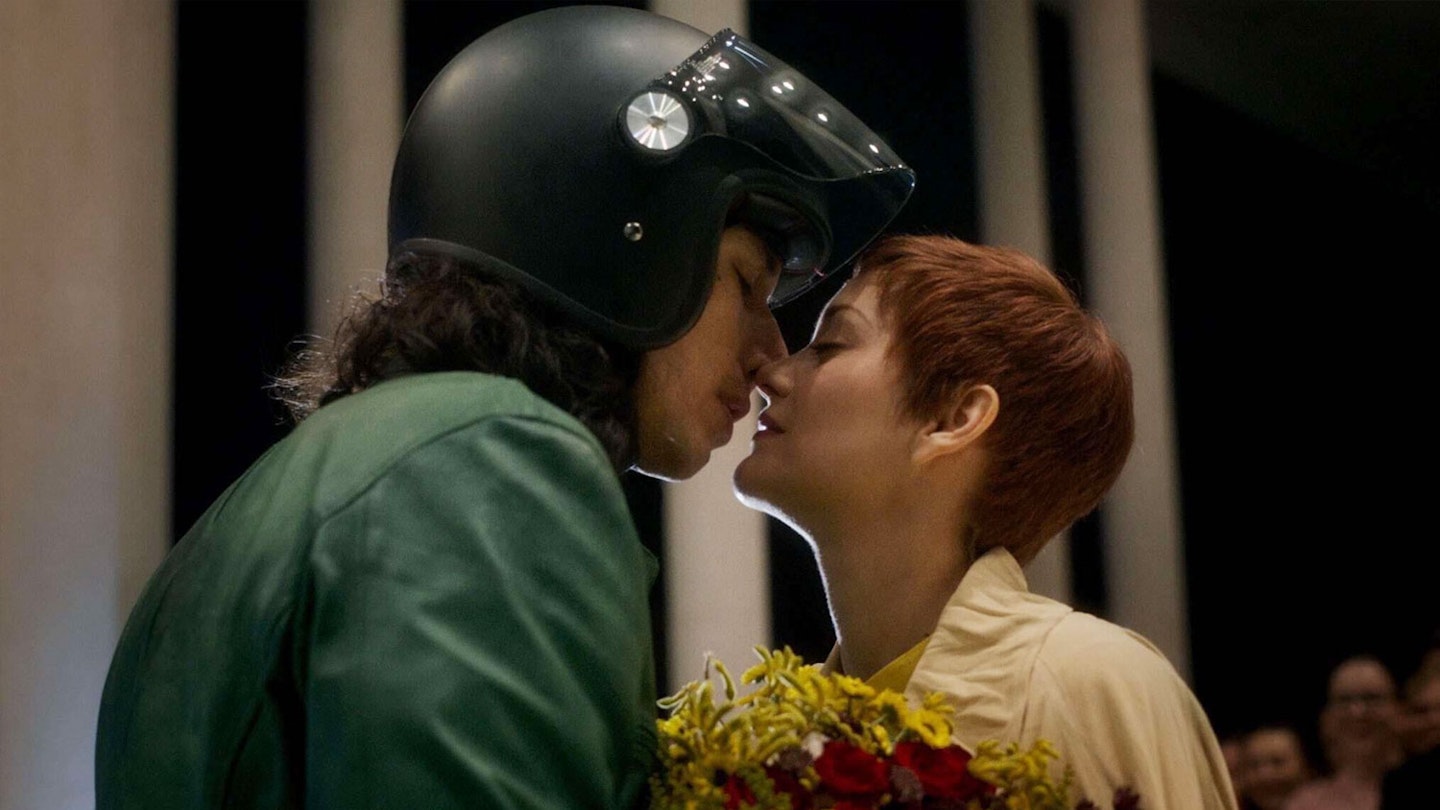 5 of 20
5 of 2016. Annette
What a year for Sparks. First, Edgar Wright immortalised the brothers Mael (Ron and Russell; Ron's the one with the 'tache) in an enormously fun rockumentary. And then their utterly demented screenplay, about a couple who give birth to a daughter who becomes one of the world's greatest singing stars, became one of the year's best movies. With Leos Carax at the helm of a Sparks story, we expected maximum weirdness and weren't disappointed. At times it feels a little like that great Key & Peele sketch where the Hollywood script doctor accepted increasingly insane pitches for Gremlins 2. You want Adam Driver singing a tender love song as he goes down on Marion Cotillard? It's in the movie. You want Howard From The Big Bang Theory anchoring a scene in which he conducts an orchestra while on the verge of a nervous breakdown? It's in the movie. How about an epic opening scene in which the movie's cast and crew sing directly to camera while walking along a Los Angeles street, before getting into character? It's. In. The. Movie. But also in the movie are great performances, excellent songs sung well by the cast, thoughts on toxic masculinity, grief, doomed love, the relationship between talent and success, the disruptive nature of fame, madness, and much, more. Oh, and you want the titular child to be played by a puppet? It's in the movie. CHRead the Empire review.
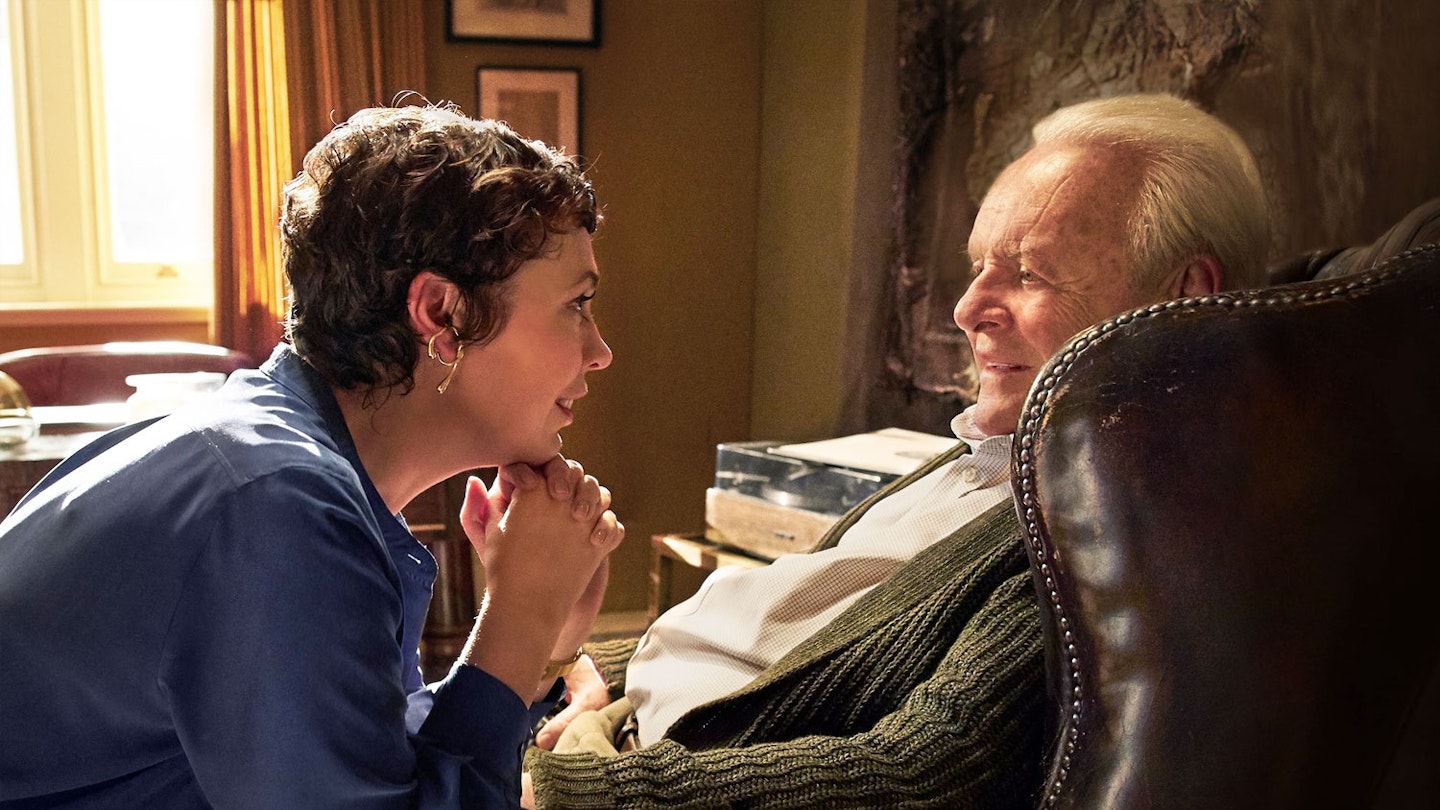 6 of 20
6 of 2015. The Father
Other films on this list crescendo with a thunderous car chase, a kinetic musical number or the take-down of a mega-fanged monster. The Father, on the other hand, has as its major third-act event the sight of an old man helplessly sobbing. And it's the ending that will likely stick with you for far longer than those others. The film offers no pat answers about the brutal blight of dementia — inevitably, it portrays a deterioration that is never turned around. But what it does provide is a hugely empathetic, unflinchingly honest depiction of a condition that affects so many of us. Anthony Hopkins (astonishing, Oscar-winning) spins through a kaleidoscope of emotions as the afflicted titular dad, one moment basking in a treasured memory, the next startled, angry or afraid as he realises he's lost his grip on the present day. The triumph of The Father, though, is that first-time director Florian Zeller pulls us deep into the character's mind for 97 minutes, switching up sets and characters and forcing us to fumble for clues just as he does. A tough watch, but essential. NDSRead the Empire review.
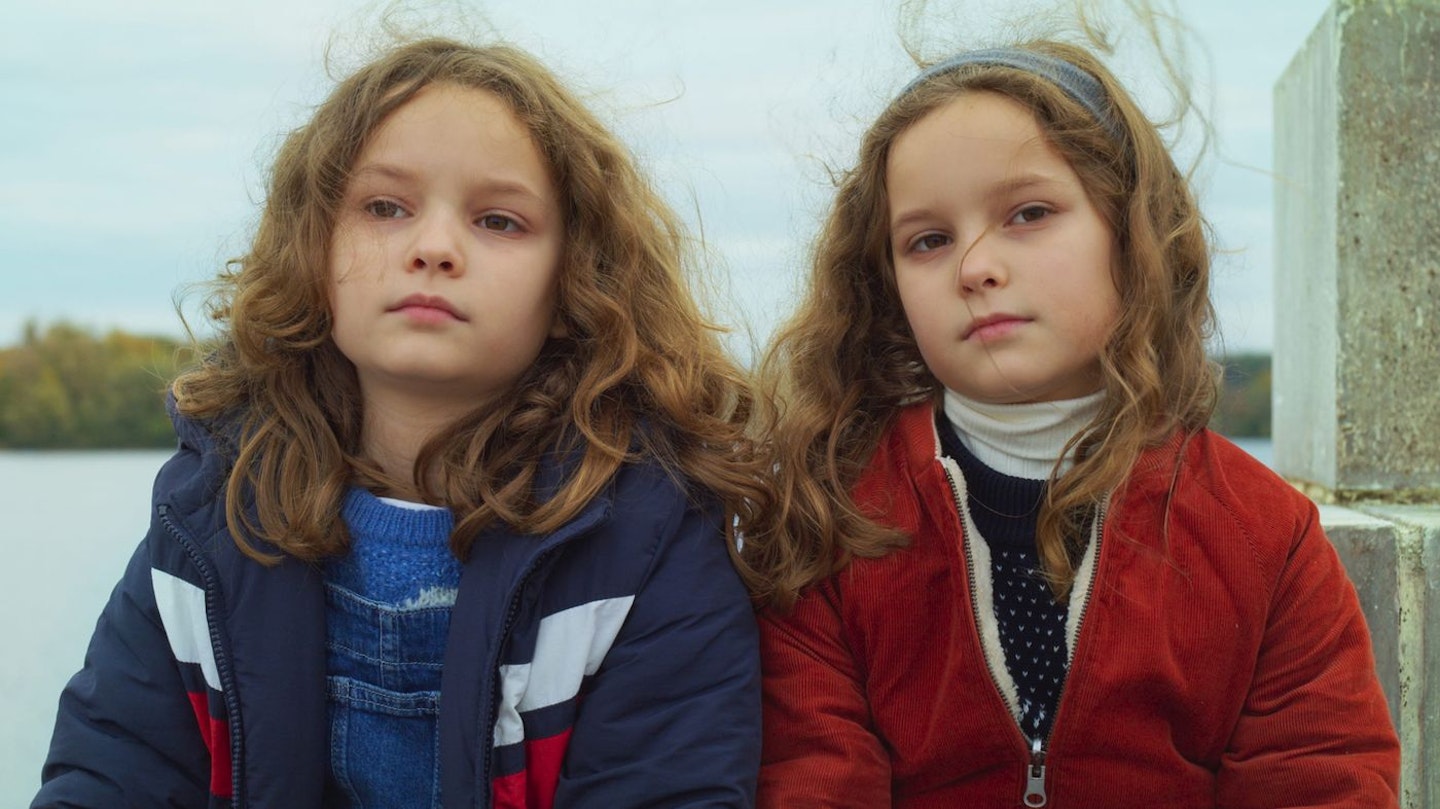 7 of 20
7 of 2014. Petite Maman
Among the high-decibel blockbusters that touched down at the end of 2021 arrived Petite Maman: a French film so quiet and delicate that it made you lean forward in your chair, rather than being blasted back into it. The strangest of confections, it's part high-concept time-travel yarn, part meditation on grief, part kids' adventure — and all enchanting. Young Nelly (Joséphine Sanz) is helping her mother (Nina Meurisse) sort out the effects of her grandmother's home — Grandma has just died in a care home — when she comes across another small girl, who it turns out is Nelly's mum, somehow transported back to childhood. They begin to form a very different bond to their usual one, baking a cake together, creating a forest den, and slowly coming to an understanding about their bizarre situation. Céline Sciamma's follow-up to Portrait Of A Lady On Fire, which charted a very different female relationship, is wispy, elegant, haunting and ultimately joyous — like nothing you've ever seen before. NDSRead the Empire review.
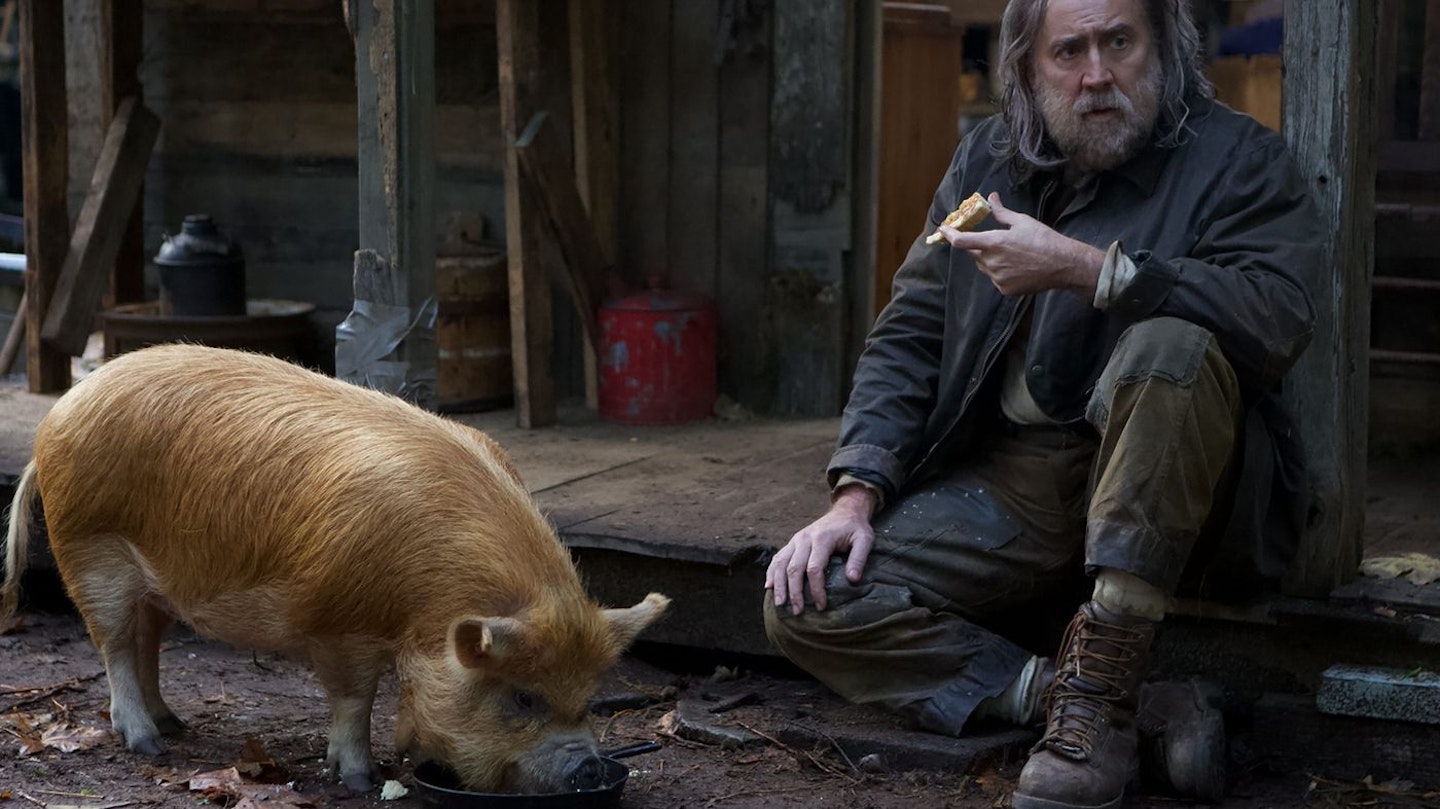 8 of 20
8 of 2013. Pig
Rasher-mon. Taken with Bacon. Farmed and dangerous. When the trailer for Nicolas Cage-and-porcine-buddy movie Pig arrived, the jokes flew at a frenetic rate. It looked like we were going to get a ridiculous thriller in which Cage hunted down the kidnappers of his abducted hog, kicking ass and dispensing justice using various bits of agricultural equipment. In fact, it wasn't that, at all. In fact, it was perhaps the nicest surprise of the year: a thoughtful, melancholy, deep-dive character study of a broken man venturing back into the world after years of solitude. Drawing on Greek myth and powered by Cage's most nuanced performance in years, Michael Sarnoski's film is an essential watch, not least for the showdown between our hero and a smarmy chef in a fancy Seattle restaurant, which doesn't go at all the way you think it will. Simply put: oink-redible. NDSRead the Empire review.
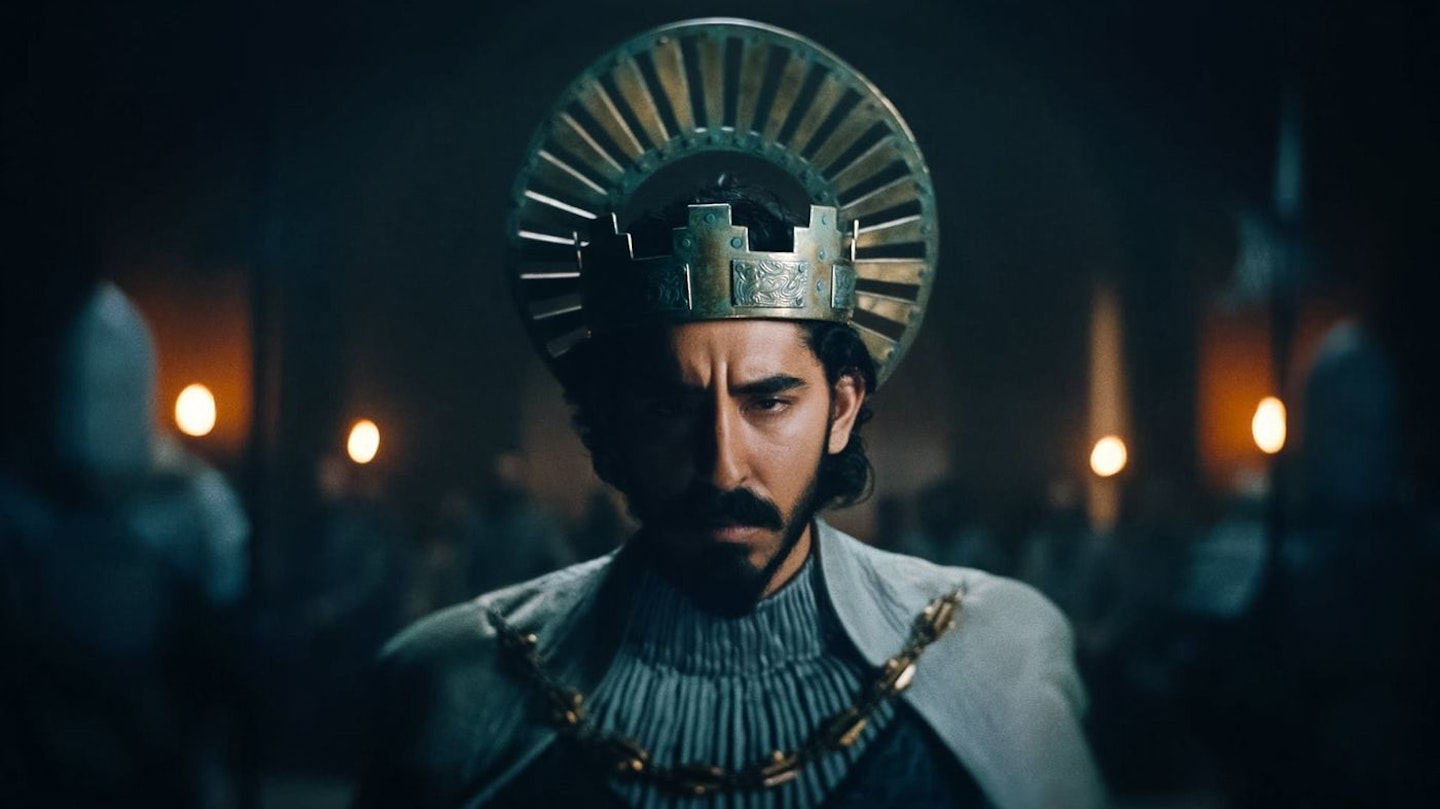 9 of 20
9 of 2012. The Green Knight
Time was that Arthurian legends were consigned almost exclusively to cheesy screen adaptations: bad wigs, shoddy swordplay, and a questionable handle on the ancient source text. Enter director David Lowery, who brings an arthouse flair to the tale of Sir Gawain, and in doing so finds new depth and meaning to a centuries-old yarn. Here, Dev Patel's Gawain is a barely capable wannabe knight: dashing and devilish, but beset by insecurities and terrible choices as he embarks on a quest to prove his honour. The journey he goes on is slow and considered, but staggeringly beautiful – Arthurian Britain has never looked so good – encountering everything from talking foxes to a handjob. Like Lowery's earlier oddity A Ghost Story, this is a rich, compelling meditation on mortality and manhood. And there's not a bad wig in sight. JNRead the Empire review.
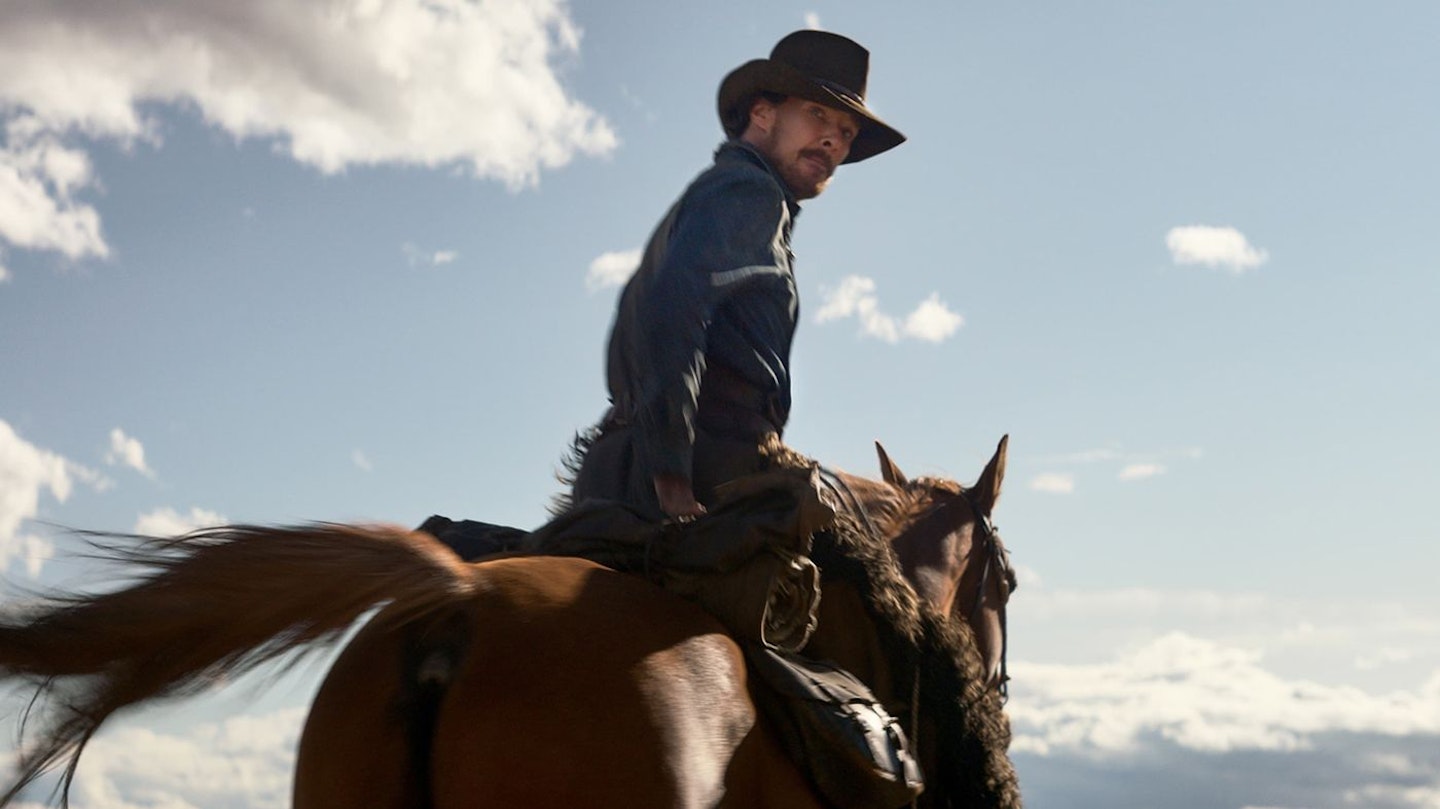 10 of 20
10 of 2011. The Power Of The Dog
Jane Campion's work has always been a feast for the senses, and The Power Of The Dog is no different. The stunningly-captured sweeping frontier vistas contrast with the tiniest tactile details, like delicately folded paper flowers, squeaking cowhide pulled tight by muddy fingernails, and the ominous sound of clinking spurs. Tension simmers between sinister rancher Phil (Benedict Cumberbatch, at his most chilling and mesmerising), gentle brother George and his new wife Rose (Jesse Plemons and Kirsten Dunst, respectively), and Rose's brother Peter (a quietly excellent Kodi-Smit McPhee), as melancholy and menacing masculinity seeps through the house and sandy surrounding landscape. With powerful performances, Jonny Greenwood's always-stellar score and a final rug-pull you won't see coming, Campion again cements herself as one of the most outstanding filmmakers still at work. SBRead the Empire review.
 11 of 20
11 of 2010. Another Round
Thomas Vinterberg's exploration of alcohol is a cinematic unicorn. It's hard to think of anything else like it, that so seamlessly mixes slapstick with tragedy; that portrays breakdowns and death but also climaxes with a joyous dance sequence; that presents a subject matter from so many perspectives without hitting you over the head with morality lessons. Mads Mikkelsen is incredible – is he ever not? – as Martin, a middle-aged school teacher having an extreme midlife crisis, bored of his job, bored of his life, while his colleagues Tommy (regular Vinterberg collaborator Thomas Bo Larsen), Peter (Lars Ranthe) and Nikolaj (Magnus Millang) are just as good. Whether you've had your own experiences with alcohol or haven't touched a drop, it's resonant stuff, provocatively existential but mostly just really, really funny and really, really sad. It won Vinterberg an Oscar for Best International Feature Film, deservedly so: it's overwhelmingly affecting. AGRead the Empire review.
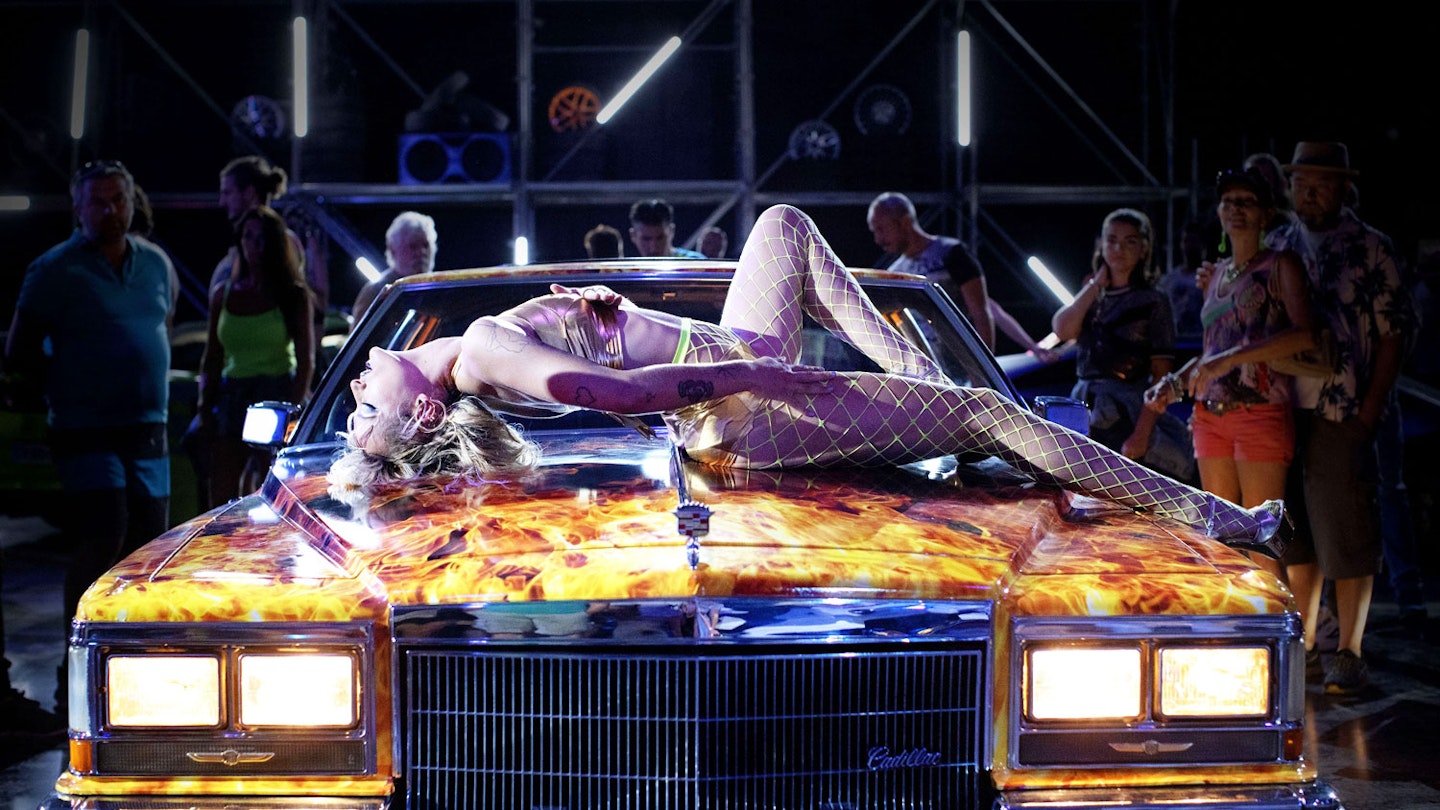 12 of 20
12 of 209. Titane
What do you get when you combine two lonely protagonists, vehicular intercourse and bone-crunching body horror? As it turns out, a surprisingly tender meditation on finding family in unexpected places. After announcing herself as a remarkable new directorial voice with her 2016 feature debut Raw, Julia Ducournau has delivered another blood-spattered banger with Titane. Newcomer Agathe Rousselle is incredibly compelling as Alexia, a girl drawn to diesel and violence ever since a car crash in her youth – and playing opposite the gravitas of French legend Vincent Lindon, sparks really fly. Titane will make you laugh, make you cry, make your eyes widen and your fists clench; send you shrinking into your seat with its sheer audacity. Fasten your seatbelts – it's one hell of a ride. SB
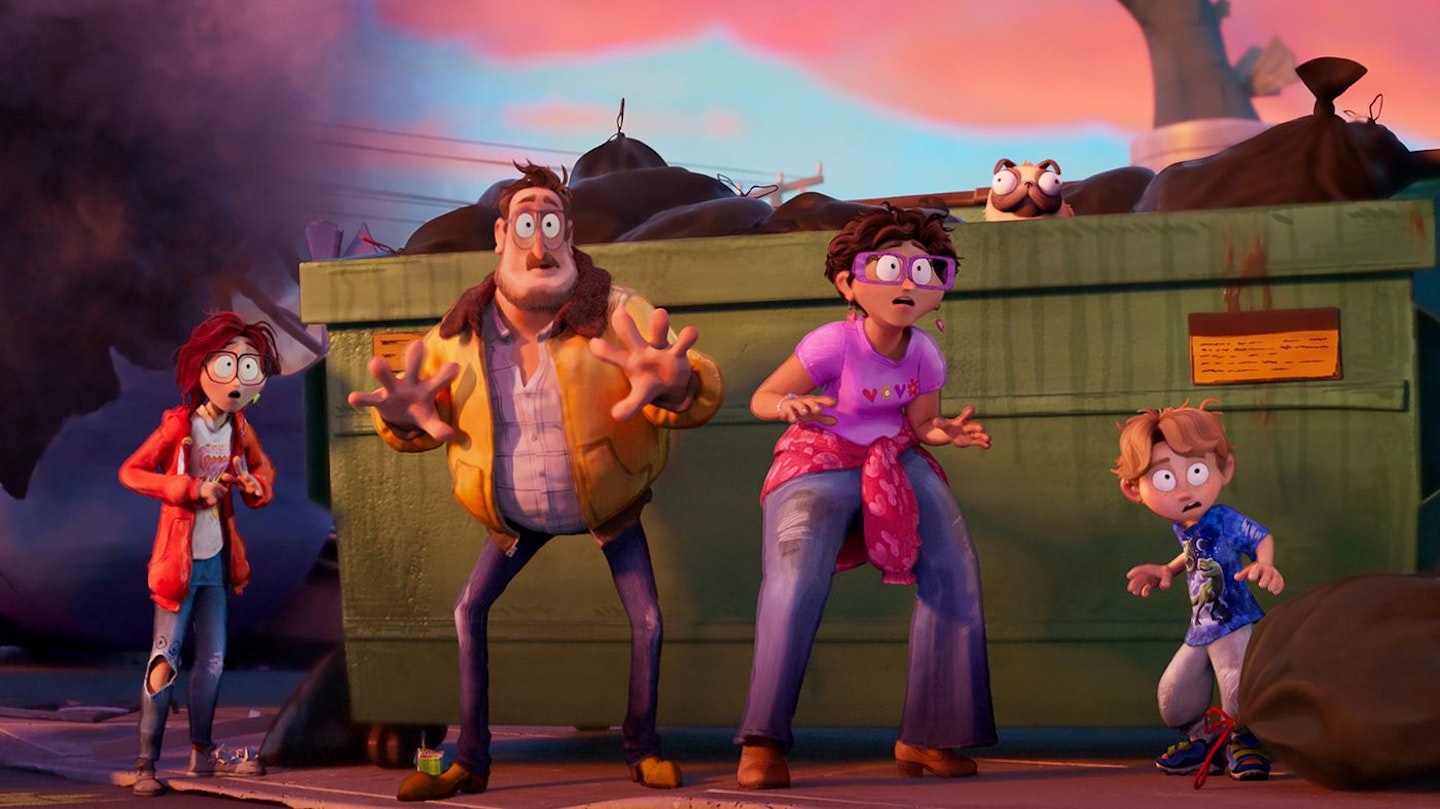 13 of 20
13 of 208. The Mitchells Vs. The Machines
The Into The Spider-Verse sequel might still be a way off, but its spiritual successor has already arrived. Produced by Phil Lord & Chris Miller, Michael Rianda's animated comedy about a dysfunctional family battling a robot apocalypse is another instant classic from the Sony Pictures Animation team – with an electrifying visual style (2D-3D hybrid textures, cartoony scrawls across the screen), a free-flowing flood of laugh-out-loud gags, and an emotional father-daughter throughline that packs real punch. With its pop culture-obsessed heroine Katie (Abbi Jacobson) and amped-up action sequences, there's plenty of Scott Pilgrim DNA in there – while a Furby-centric setpiece at the midway mark ranks among the most deliriously funny sequences of the year. The Mitchell clan themselves are the secret weapon, though, tugging heartstrings and delivering laughs aplenty across the entire runtime. The Mitchells Vs The Machines is a road trip you'll want to take again and again and again. BTRead the Empire review.
 14 of 20
14 of 207. Palm Springs
The time-loop premise of Groundhog Day has been borrowed so frequently and brazenly — from Source Code to Happy Death Day to Russian Doll to The Legend Of Zelda: Majora's Mask — that it's started to feel a little bit like…well, y'know. Kudos, then, to Palm Springs, which liberally poaches the bare bones of Harold Ramis's classic comedy and somehow finds some fresh flesh for them. Director Max Barbakow (in his feature debut) spins some glorious comedy from the timey-wimey stuff — given some added scientific weight by consulting theoretical physicist Clifford V Johnson, who makes a cameo — and somehow manages to craft a believable, charming love story. The fact that the central relationship feels so real in amongst all the sci-fi unreality is a testament to both Barbakow's steady directorial hand and the effortless chemistry between Andy Samberg and Cristin Millioti. Also, there's a mushroom trip, with dinosaurs! NDSRead the Empire review.
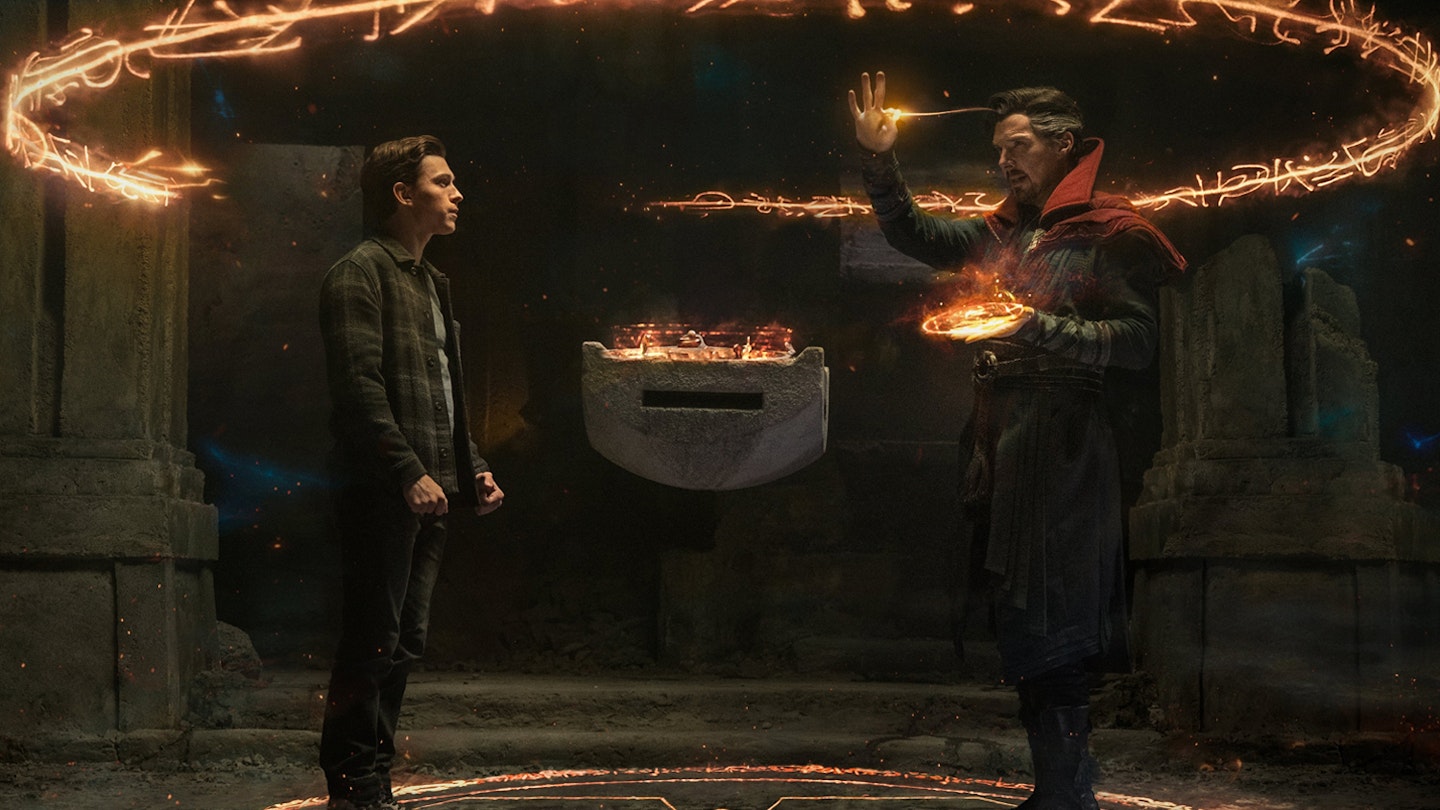 15 of 20
15 of 206. Spider-Man: No Way Home
Throughout the pandemic, there's one video Marvel fans have revisited in order to get a taste of the cinematic highs – the joyous shared experiences – that were once a fact of life in the Before Times: Cap lifting Mjolnir in the final reel of Endgame, as a live audience visibly loses their collective shit. To say anything that goes down in Jon Watts' third MCU-canon Spider-Man film would be to spoil it – but safe to say, it delivers moment after incredible moment specifically designed to stimulate floods of dopamine in the collective nerd consciousness. That it does so with such heart and wit and real substance, too, is what makes it sing. Cooking up a multiversal Spidey brew that brings in villains from Sam Raimi's game-changing '00s flicks (Green Goblin! Doc Ock!), and Marc Webb's less-well-loved Amazing Spider-Man duology (Electro! Er, Lizard?), No Way Home pitches Tom Holland's Peter Parker and Benedict Cumberbatch's Doctor Strange into the heart of all the mayhem with aplomb. Miraculously, the teenage kicks of Homecoming are still present (will Peter, Zendaya's MJ and Jacob Batalon's MVP Ned all get into college?), but there are deeper, darker moments here that get to that universal Spider-Man truth: with great power, comes great responsibility. BTRead the Empire review of Spider-Man: No Way Home.
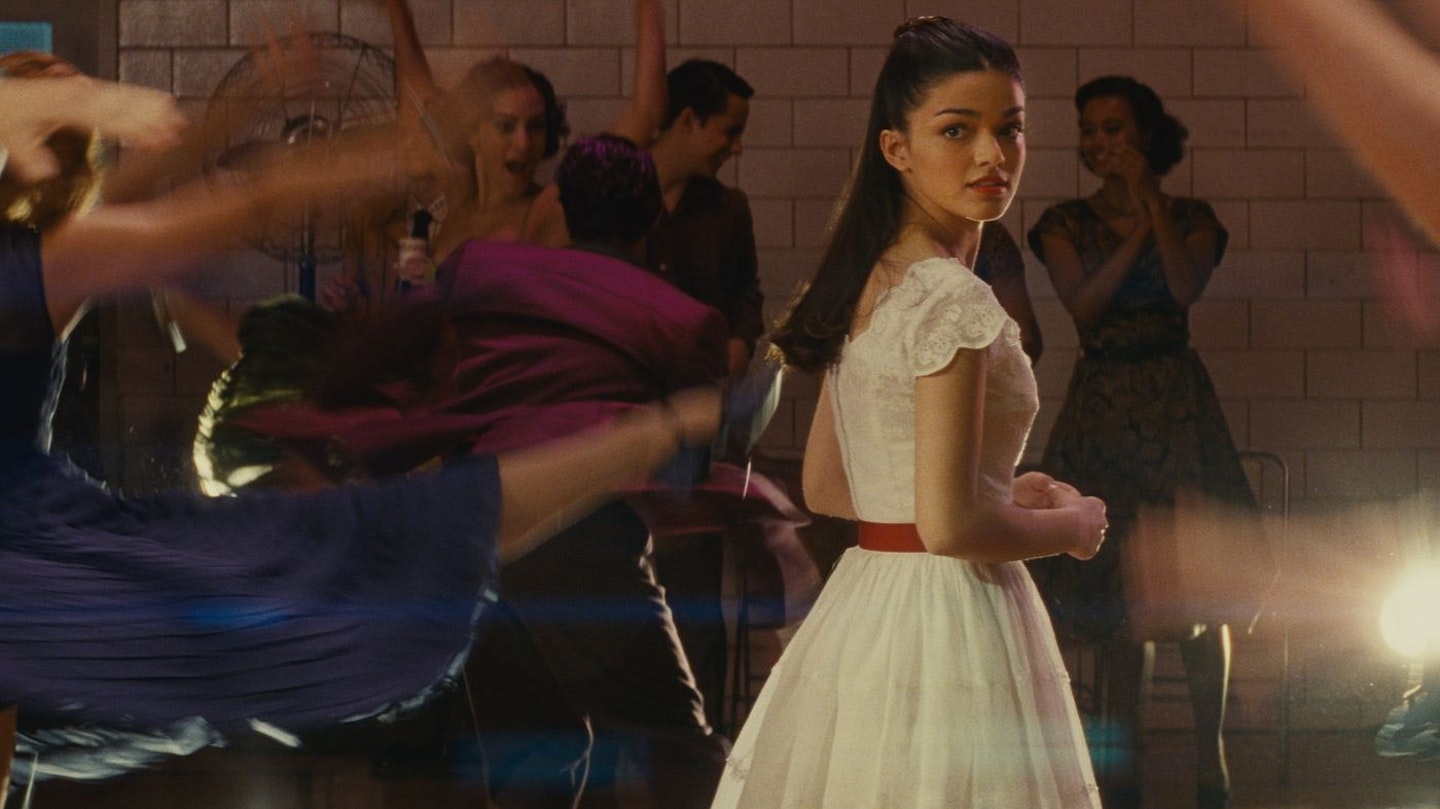 16 of 20
16 of 205. West Side Story
Legend has it that Steven Spielberg always wanted to direct a musical, and in his version of West Side Story, it shows. There's such vitality to the show-stopping setpieces hooked on those stellar songs by Stephen Sondheim and Leonard Bernstein, sequences that seem to have sprung straight from Spielberg's subconscious and spilled onto the screen – gorgeously choreographed, popping with colour, and shot with graceful camerawork that becomes part of the cinematic dance itself. Beyond the technical mastery and shining songs, West Side Story is packed with star-making turns: Rachel Zegler inhabits lovestruck Maria with wide-eyed wonder and a steely determination, Ariana DeBose is a triple-threat of talent (acting, singing, dancing – all knockout) who threatens to steal the entire show, and Mike Faist has a magnetic charisma as rowdy Jets ringleader Riff that's impossible to ignore. Add in a smart script that explores racism and disenfranchisement in America with resonance, a great turn from the legendary Rita Moreno, and a progressive approach to bilingualism (there are no Spanish subtitles here), and you have a worthy successor to a cinema classic. It's both thrilling and joyous to see Spielberg so invigorated at this stage of his career – turns out, letting one of the greatest directors of all time loose on one of the most iconic musicals ever really is the makings of movie magic. BTRead the Empire review.
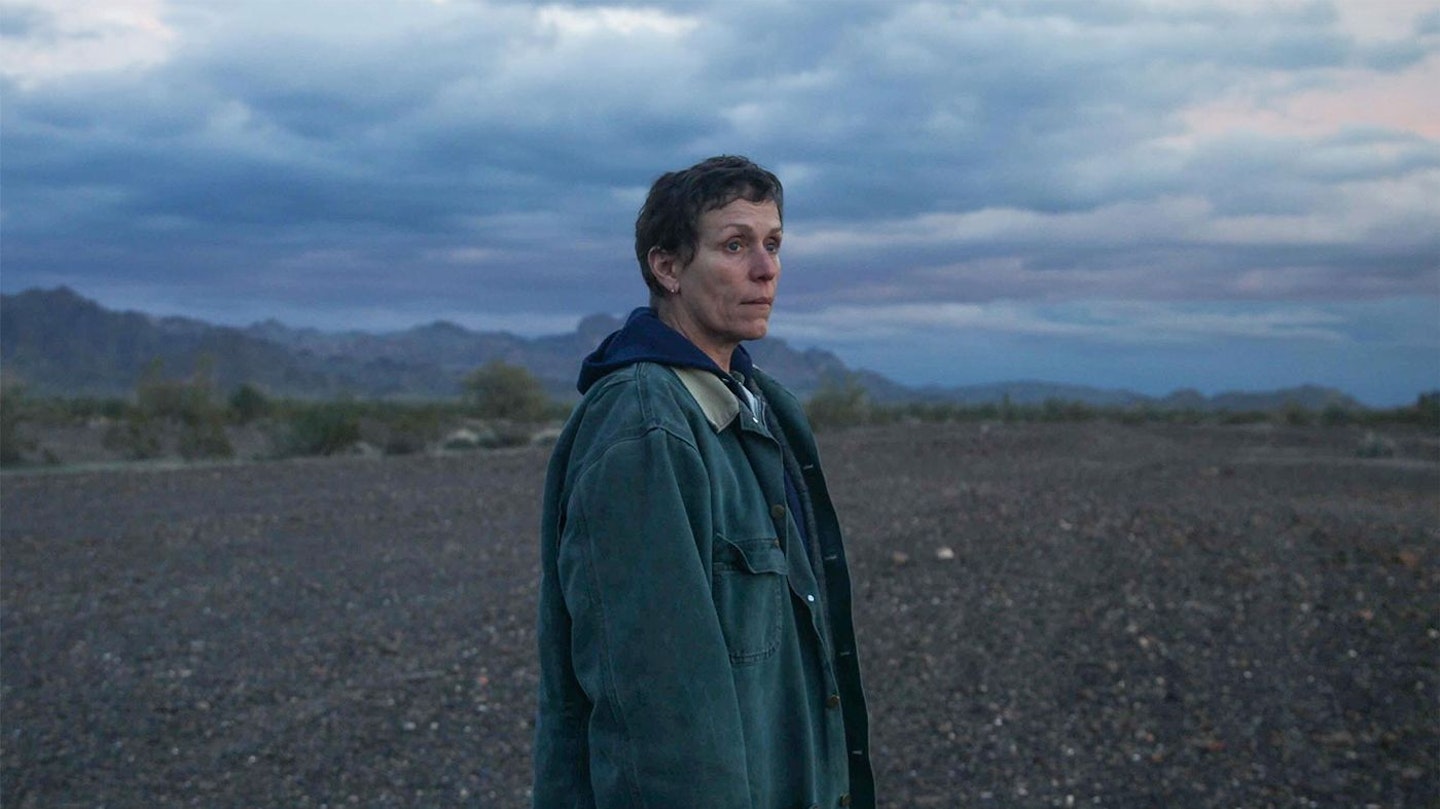 17 of 20
17 of 204. Nomadland
If there was an award for the filmmaker behind the two most divergent films of 2021, it'd have to go to Chloé Zhao. While she ended the year with a big swing by releasing epic superhero fantasy Eternals – possibly Marvel's most divisive movie ever, with a story spanning 7000 years and a cast comprising 10 cosmic gods – she kicked it off with awards favourite Nomadland. There are no exploding volcanoes or celestial brawls here – just gorgeous wide-screen vistas and beautifully-handled human stories galore, as Frances McDormand's Fern takes on a nomadic lifestyle and traverses the American expanse in the wake of financial catastrophe, finding valuable companionship and odd-jobs as she moves from place to place. Operating in a similarly low key to her previous film The Rider but with more lightness and warmth, Nomadland is a film with peaceful sensibilities and a reflective outlook – Zhao once again spinning screen gold from non-actors with a supporting cast of real-life nomads. All that, and McDormand shits in a bucket. No wonder it swept the Oscars. BTRead the Empire review.
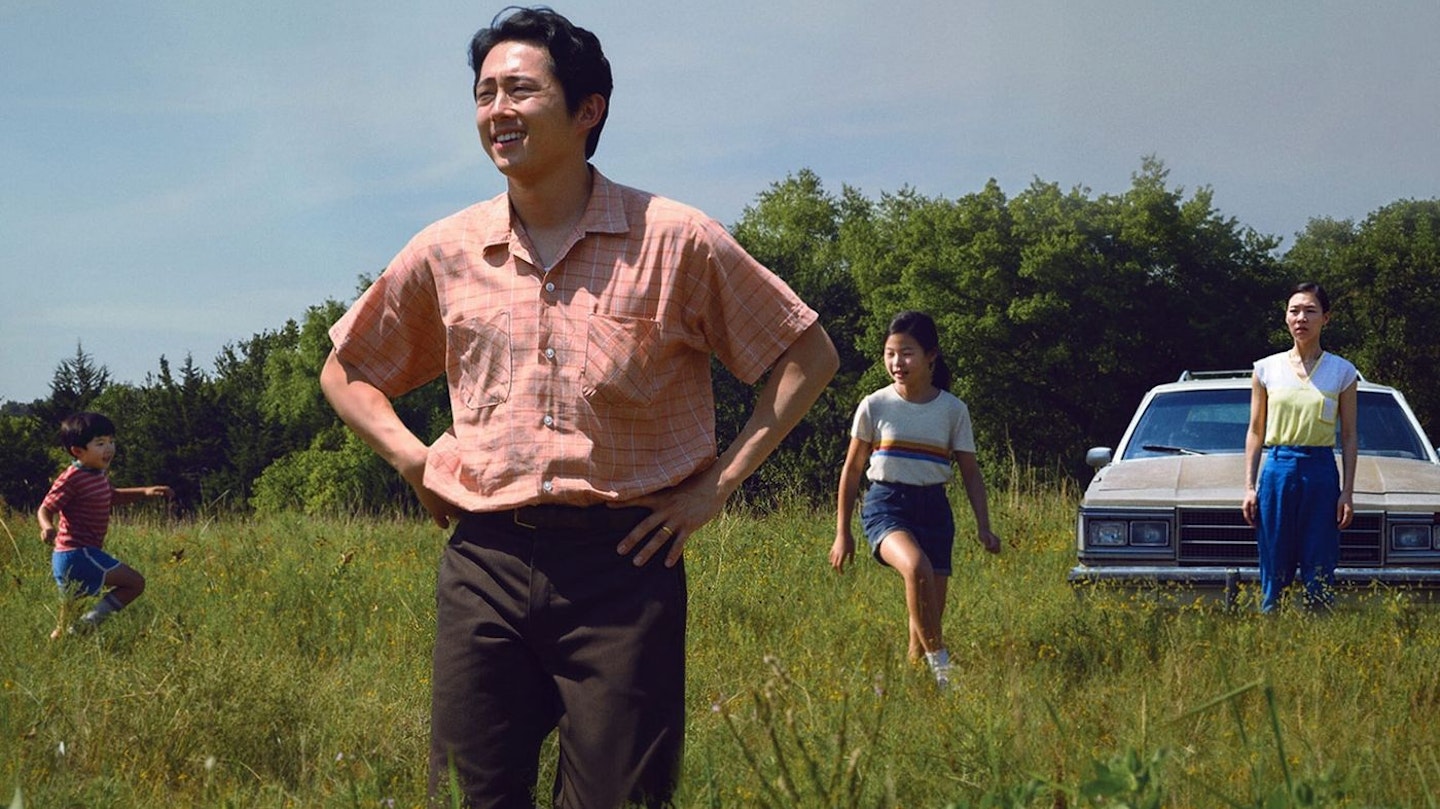 18 of 20
18 of 203. Minari
First things first, it's pronounced Mih-na-ree, and it's a weed that purifies the ground and the water around it. This is what Lee Isaac Chung's mini masterpiece is all about, the deep connections that root us. It tracks a Korean-American family — Steven Yeun, Yeri Han, Noel Cho and the adorable young Alan Kim — who move to a tiny Arkansas farm pursuing their own take on the American Dream™. The 'drama' is provided by the arrival Grandma (a BAFTA winning Yuh-jung Youn, who winningly dubbed the Brits "snobbish") but Minari eschews grandstanding in favour of a tender portrait of the realities of cultural assimilation. So much impresses — the performances, Lachlan Milne's cinematography, Emile Mosseri's score — but what really gets you is Chung's generosity of spirit towards his characters and the word. Small scale but big-hearted. IFRead the Empire review.
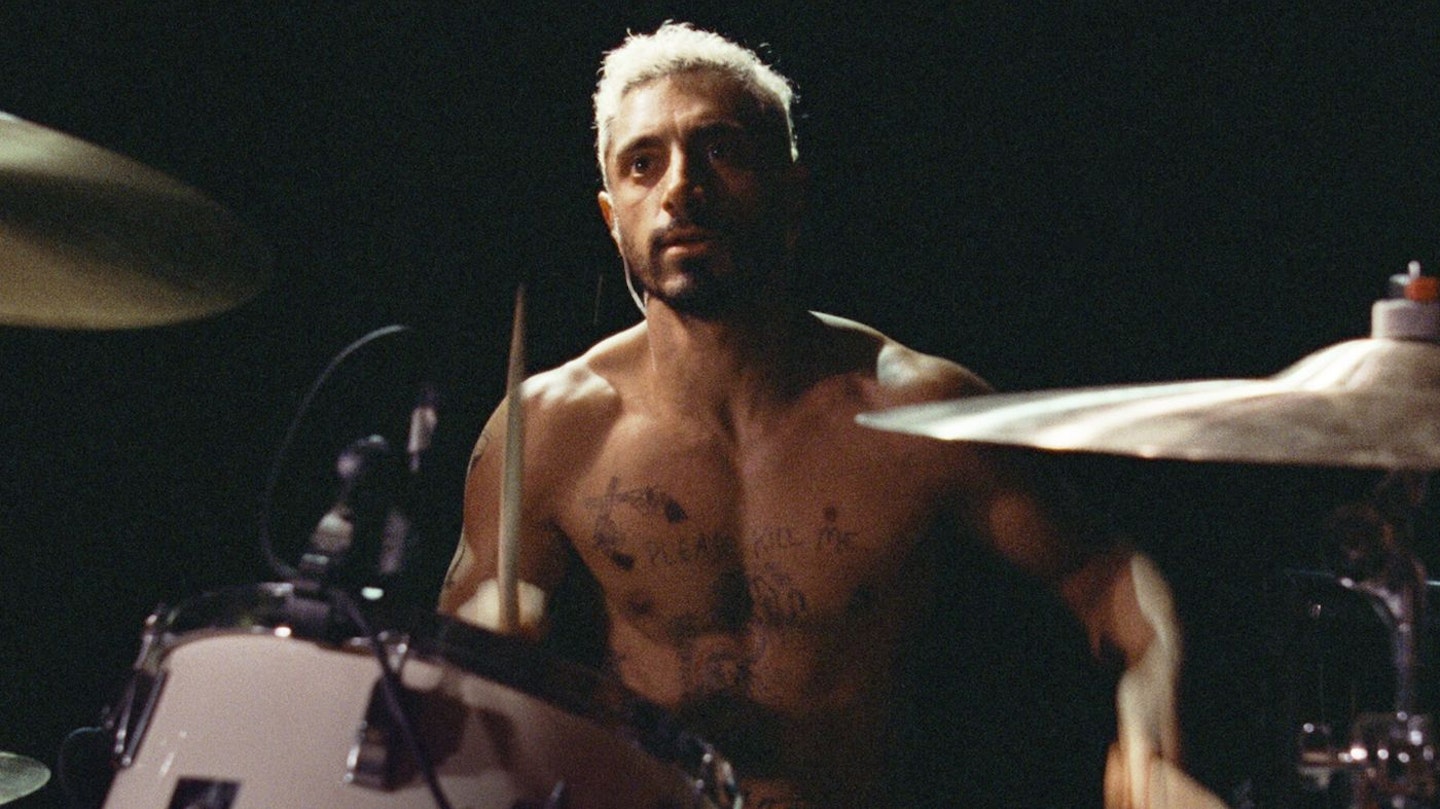 19 of 20
19 of 202. Sound Of Metal
Film reviews rarely call out sound designers, but Nicholas Becker's extraordinary work on Darius Marder's stunning debut deserves all the plaudits (not to mention an Academy Award) as it puts you inside the head of heavy metal drummer Ruben (Riz Ahmed), losing not only his hearing, but also his raison d'étre. Sound Of Metal is about so much more than an aural flex. Marder's film is at once gripping drama and a persuasive corrective to perceiving deafness as a disability. That the film's thematic idea about embracing what life throws at you never seems trite is down to Marder's sensitive writing and a stellar performance by Riz Ahmed, who convincingly etches an arc from anger and disbelief to a form of understanding. The pair transform a potentially trite premise and transform into something moving and true. For a film built around heavy metal, Sound Of Metal has so much soul. IFRead the Empire review.
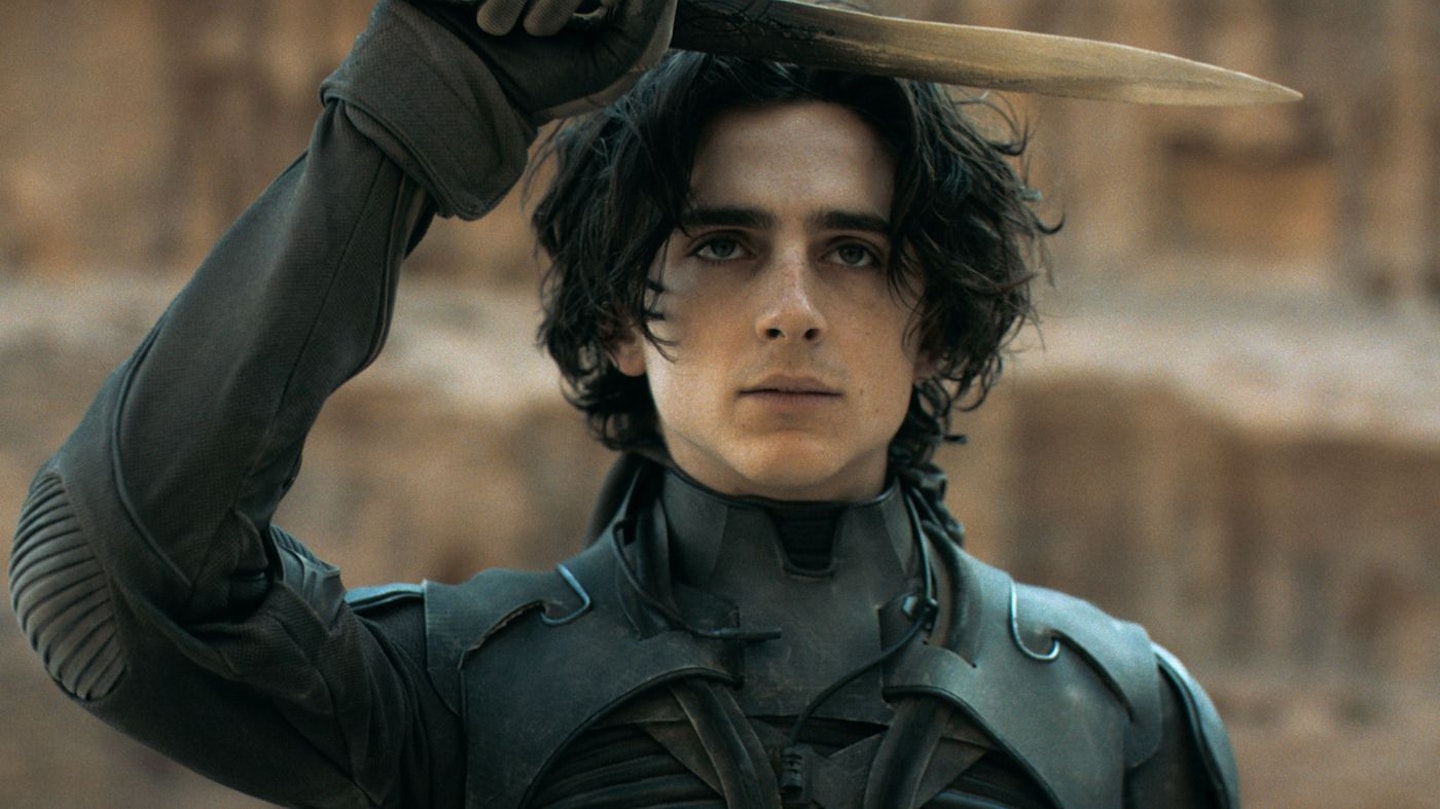 20 of 20
20 of 201. Dune
If at any point you've pondered what's been missing from our lives for most of this past year, the answer lies about half an hour into Denis Villeneuve's Dune. Bathed in golden light, Duke Leto Atreides (Oscar Isaac) strides forth from a monolithic starship, framed by the tendrils of Lady Jessica Atreides' (Rebecca Ferguson) gossamer robe snapping in the wind. When Duke Leto and his retinue set foot on Dune's desert planet for the first time, the sheer majesty of the vista (not to mention the wail of Hans Zimmer's space bagpipes) is enough to bring tears to the eye. Because the last 12 months, largely spent deepening the buttock crevasses in our respective sofas, have seen us sorely starved of spectacle.From the lush coastal bluffs of Caladan, to the demonic gloom of Giedi Prime, Villeneuve (ably assisted by cinematographer Greig Fraser) takes us on a journey that dazzles the senses and envelops us completely in Frank Herbert's universe. A sweeping space opera tinted with arthouse sensibility, the film is less concerned with its action set-pieces (delivered with unwavering confidence nonetheless), and rather in soaking up every mote of colour, texture and sensation in the world of force shields on Atreides soldiers, or the wallowing mass of Stellan Skarsgård's Baron, breaching the surface of his oil bath like a swollen, pasty leviathan. But it's not just a feast for the senses. Villeneuve has successfully distilled Herbert's notoriously dense tome (well, half of it) into a two-and-a-half-hour adventure packed with backstabbing nobles, sprawling battles and chambara-style swordplay. The result is a coming-of-age story, a Shakespearean tragedy, a musing on messianic theology, and a parable of colonialism and indigenous exploitation — with great big fuck-off sandworms. It's a film, quite simply, that has something for everyone, regardless of whether their desire is for popcorn entertainment or evidence of film as art. Still, as accomplished as Dune is for its cinematography and as compelling as its story becomes, its strength, more than any other this year, is that it's transportational. At a time when we've never been so contained, Villeneuve harnessed film's ability to take us places we've only dreamed of, to see things we people wouldn't believe. Here, presented with an awe-inspiring spectacle from this most visual of filmmakers, each and every one of us was reminded just how much we've missed the cinema. JDDenis Villeneuve responds: "Adapting this first part of Frank Herbert's Dune was a lifetime privilege. It has also been my biggest artistic challenge. Learning that the whole Empire team enjoyed the film sincerely moves me. From my team and me, thank you, Empire!"Read the Empire review of Dune.
READ MORE: The Best Movies Of 2020
READ MORE: The Best Movies Of 2019
READ MORE: The 100 Greatest Movies
